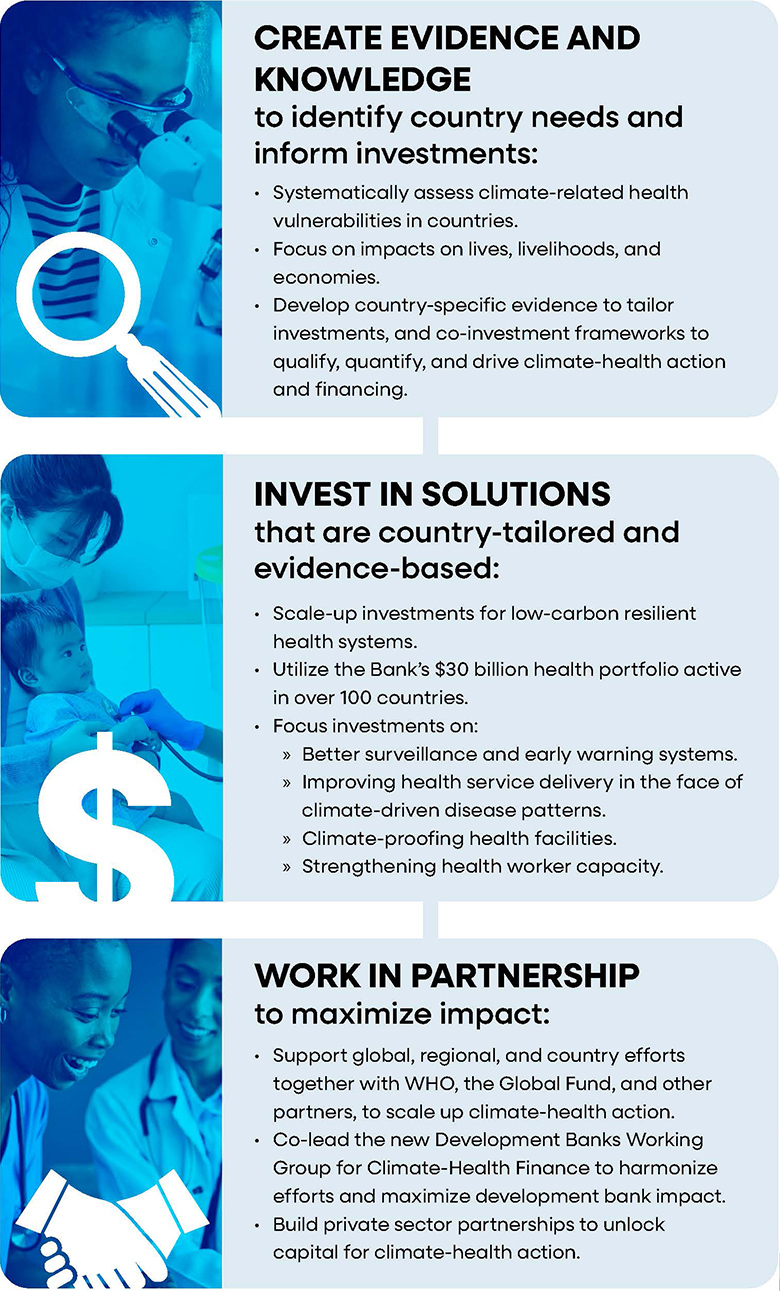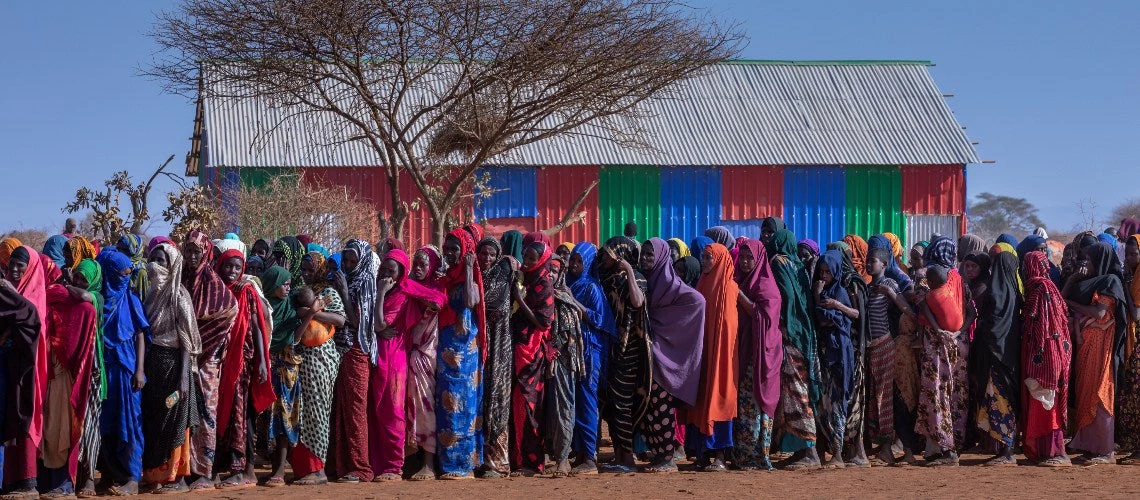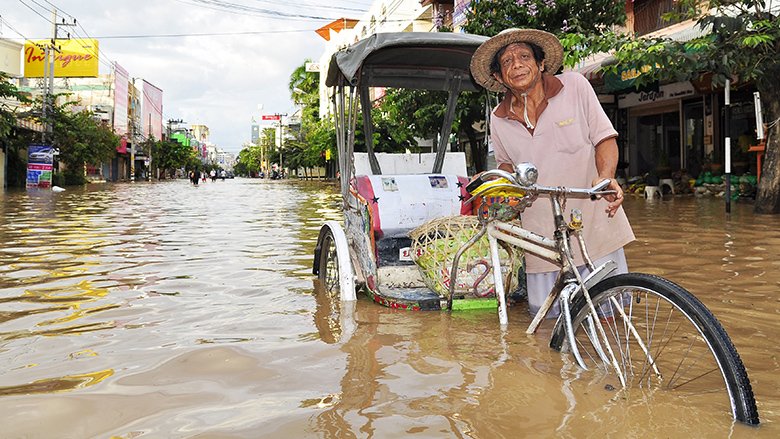Impact of Climate Change on Health: The Cost of Inaction
The links between climate, poverty and health are clear. The climate crisis is a health-risk multiplier. Extreme weather events are devastating health globally. By 2030, climate's negative health effects could drive at least 44 million people into extreme poverty.
New Report
Climate change: a global health emergency
As the global climate crisis escalates, its devastating impacts on human health and well-being will also accelerate. No one anywhere around the globe is beyond its reach, though millions of people – notably, women, children, older adults, communities of marginalized identity, displaced persons, people with pre-existing health conditions, and those living in poverty – are among the most vulnerable.
Changing climate conditions are altering burdens of disease, including by increasing heat-related illnesses and deaths; shifting the patterns of infectious disease transmission, making deadly disease outbreaks and pandemics more likely; worsening maternal and child health outcomes; and intensifying health impacts from extreme weather events such as floods, droughts, wildfires, and windstorms.
Climate change also exerts significant strains on health systems, simultaneously increasing demand for health services while impairing the system’s ability to respond. Furthermore, the climate crisis is rapidly deteriorating access to basic human needs such as food security, safe drinking water and sanitation, and clean air. The result, according to new World Bank data, is that a changing climate could lead to excess health costs in low- and middle-income countries of at least US$21 trillion by 2050, equivalent to approximately 1.3% of their projected GDP.
Unabated climate change is also expected to make the global goal of poverty reduction even more challenging to reach. A recent World Bank study estimates that climate change may push an additional 132 million people (more than half of whom live in Sub-Saharan Africa and South Asia), into extreme poverty by 2030, with 44 million of these driven by health impacts.
The extent to which current and future generations will be impacted by the climate crisis depends on the choices we make today. In collaboration with partners, the World Bank is committed to supporting countries’ efforts to respond to the greatest health challenge humanity faces. |
Three key pillars of the Climate and Health Program

How the World Bank tackles the climate-driven health crisis
As the largest climate financier, and the biggest funder of health systems, the World Bank is committed to increasing its investments in climate-health action. Through its Climate and Health Program, it is integrating climate considerations through its $30 billion health portfolio which is already active in over 100 countries.
The World Bank is supporting countries to:
- Strengthen health systems to predict, detect, prepare, and respond to climate risks and disasters, by, for example, building climate-informed surveillance and early-warning systems, increasing health workforce capacity in climate-health, and climate-proofing healthcare infrastructure.
- Transition health systems to low-carbon, high-quality service delivery, such as through clean, renewable energy for infrastructure and fleets, and low-carbon medicines and equipment. This is critical, since the health sector is not only vulnerable to climate change but is also a major contributor to its magnitude. It is responsible for approximately 5% of greenhouse gas emissions globally.
- Address the root causes of climate change and its impacts on health by working across sectors to scale up efforts in, among other areas, One Health; water, sanitation, and hygiene; and energy efficiency.
The World Bank has already made significant climate-related health investments across more than 100 countries – of which nearly three-fifths have been allocated for adaptation interventions such as urgent nutrition support, surveillance systems, and emergency response centers. For example:
- In Indonesia, we are partnering with three other multilateral development banks (the Asian Development Bank, the Asian Infrastructure Investment Bank, and the Islamic Development Bank) to invest $4 billion in the country’s ambitious health system transformation agenda. Our financing covers energy-efficient medical and laboratory equipment as well as telemedicine to ensure continued service delivery during climate shocks while reducing emissions. Approximately 273 million Indonesians (including more than 300,000 health staff and volunteers) will benefit.
- In Sierra Leone, we are supporting procurement of energy-efficient, low-carbon health equipment and climate-smart health facility rehabilitation, construction, and solarization. These investments were informed by a Climate and Health Vulnerability Assessment, and will improve access to resilient, high-quality essential health services for at least a third of the population.
- In Nigeria, we are applying a Sector-Wide Approach in partnership with other funders to support the government’s plans to integrate climate throughout its health sector reforms. We are investing in infrastructure solarization, financing climate-health policy planning and implementation efforts at national and state levels, and scaling up financial protection for climate-vulnerable populations. In addition to major improvements to health system assets, governance, and preparedness, this project will also directly benefit 40 million people with improved access to quality essential health services.
How Can Countries Navigate Climate and Development Challenges?
A new World Bank Group core diagnostic uses data, economic modelling, and cost-benefit analysis over time to identify the most effective, high-impact actions countries can take to reach their climate and development goals together.



